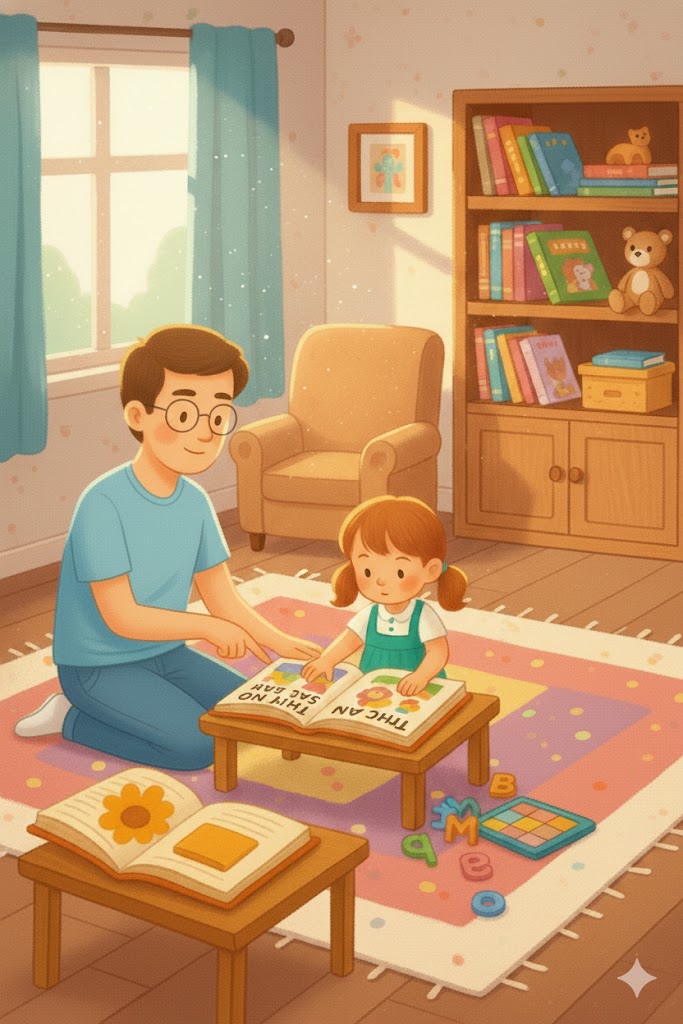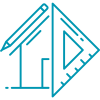If you are currently homeschooling a child/children under 7, you’ve probably started to focus on reading skills.

Here in England there is a large focus on the phonics method of teaching.
At the end of year 1 schools in england do a 40 word phonics screening test with children.
The list of words includes real words like is, in, at etc. but also some made up words to test if children can blend their sounds.
If you take a phonics only approach to teaching reading, my personal opinion is that there will be 2 major issues with this approach:
1: Not all words can be sounded out
What do you do when you get to ‘sum’ and ‘some’?
‘The’ cannot be sounded out
Other problematic words or sounds:
Thought, Though
Their, There
Beautiful
Words inherited from french
And so on…
2. The other issue is that phonics focuses so much on sounding out sounds and symbols that the main purpose of reading – to understand and learn – ironically is lost.
What is the point of being able to read without any understanding of the words and sentences?
So what is the solution?
As with most things, it seems to make sense to adopt a mix of approaches.
Some phonics, or teaching of letter sounds is certainly necessary to help your child understand how words are formed and why those specific letters are used.
E.g Cat, Bat, On, Is etc.
But I would highly recommend introducing context with these words as soon as possible.
E.g. The cat is red.
Also keywords like The, And, Be, But should be introduced quite soon and whilst some can be sounded out, some will need to be recognised or learnt as they are.
The words: The, Then, There
Introduce these words in context and slowly start forming sentences with one of these words at a time so that your child gets used to the spelling formations and the idea that sounds can change depending on context.
The importance of reading with your child from birth:
Also please remember that learning to read and write is much easier if you lay the groundwork from birth.
Always have books around and read to your child regularly.
They understand so much before they learn to speak.
After about 2/3 years of age when they start paying attention to the letters and words they will start recognising familiar patterns.
So reading the same books in your lap where they can see the words and pictures will make a huge difference.
When they start learning to read by themselves, use the same books they have enjoyed and start pointing out the easy common words.
What about writing?
There is some debate about when children’s hands are physically ready to hold a pen and write regularly.
Its best to see how your child responds by offering the opportunity to write, colour etc. and you will know when they are ready and willing.
Keep writing tasks fun and relevant to your child.
Things like writing their own name – they may want to write it on everything they own!
Writing a letter to daddy or a relative etc.
Make it fun and don’t force it too much particularly before the age of 5.
Also letting them choose their own notebooks and stationery is a great way to keep them interested.
Development is different for every child
Just because someone else’s child is reading at 3 years old and yours is still ripping the flaps out of books because that’s way more fun doesn’t mean you should panic or feel like your child is behind.
Every child develops normally and all children have different interests and personalities.
Also ‘early’ readers aren’t necessarily more ‘successful’ later on in life. What matters is that at some point between the age of 3 and 7 your child starts to recognise words and sentences and enjoys some reading and writing.
As long as you keep introducing the concept of reading in different ways through games, conversations, – even through cooking/shopping together – it will click for your child.
I hope this has been helpful, please do share your questions and stories in the comments below!

Comments